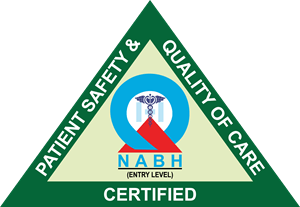Patient Counseling
What Is Patient Counseling ?
Patient counseling, also known as medication counseling or pharmaceutical counseling, is a crucial aspect of healthcare provided by pharmacists. It involves the communication of important information and advice to patients about their prescribed medications, over-the-counter products, and healthcare-related topics. The aim of patient counseling is to empower patients with the knowledge and understanding they need to use their medications safely and effectively.
Medication Education: Pharmacists provide detailed information about prescribed medications, including the drug's name, purpose, dosage, route of administration, and how it works in the body. Dosage Instructions: Patients receive clear and specific instructions on how to take their medications, including timing, frequency, and any special considerations (e.g., with food or on an empty stomach). Potential Side Effects: Pharmacists explain potential side effects or adverse reactions that may occur while taking the medication. They also provide guidance on when to seek medical attention for severe or unexpected side effects. Interactions and Contraindications: Patients are informed about possible interactions between their prescribed medication and other drugs, supplements, or foods. They are also advised about any contraindications or situations in which the medication should not be taken. Storage and Handling: Patients receive guidance on how to properly store and handle their medications to ensure their effectiveness and safety. Missed Doses and Overdose Prevention: Pharmacists advise patients on what to do if they miss a dose of their medication and how to avoid accidental overdoses. Special Considerations: Patients with specific health conditions (e.g., pregnancy, allergies) or special needs (e.g., children, elderly) receive tailored advice on medication use. Patient counseling is a collaborative effort between pharmacists and patients to ensure safe and effective medication use. It empowers patients to take an active role in their healthcare and promotes better health outcomes. Additionally, it helps enhance medication adherence and reduces the risk of medication-related problems.

What Is The Main Cause Of Patient Counseling ?
The main cause of patient counseling is to ensure that patients have a clear understanding of their prescribed medications and how to use them safely and effectively. This process serves several important purposes in healthcare:
- Medication Safety and Adherence: Patient counseling aims to enhance medication safety by providing patients with accurate information about their prescribed medications. This helps reduce the risk of medication errors and adverse reactions.
- Empowerment and Informed Decision-Making: Patient counseling empowers individuals to actively participate in their own healthcare. It enables them to make informed decisions about their treatment, leading to greater control over their health outcomes.
- Optimal Medication Use: Clear and thorough counseling ensures that patients understand how to take their medications as prescribed, including dosage, frequency, and any special instructions. This promotes effective use of the medication for optimal therapeutic outcomes.
- Side Effect Management: Patients are informed about potential side effects or adverse reactions associated with their medications. This knowledge allows them to recognize and address any unexpected or concerning symptoms.
- Interaction Awareness: Patients receive information about potential interactions between their prescribed medication and other drugs, supplements, or foods. This helps prevent potentially harmful interactions.
Adherence to Treatment Plans: Patient counseling encourages medication adherence, which is crucial for managing chronic conditions, preventing complications, and achieving the best possible health outcomes. Patient Engagement and Trust: Effective communication and counseling build trust between patients and healthcare providers. It fosters a positive patient-provider relationship, leading to better collaboration in the management of health conditions. Risk Mitigation: Patients are educated about potential risks associated with their medications, including contraindications and precautions. This knowledge empowers them to take necessary precautions and seek medical attention when needed. Personalized Care: Patient counseling allows for tailoring information to each individual's specific needs, health conditions, and preferences. This personalized approach enhances the relevance and effectiveness of the counseling. Prevention of Medication-Related Problems: Counseling helps identify and address any concerns, questions, or misconceptions patients may have about their medications. This proactive approach helps prevent medication-related problems. Enhanced Health Literacy: Patient counseling contributes to improving health literacy by providing patients with the knowledge and skills they need to understand and manage their health conditions and medications. Overall, patient counseling is a vital component of healthcare that promotes safe and effective medication use. It empowers patients to take an active role in their own health and supports better treatment outcomes. Additionally, it contributes to a collaborative and patient-centered approach to healthcare.
Clinical Services
Facilities
24 Hours Services



